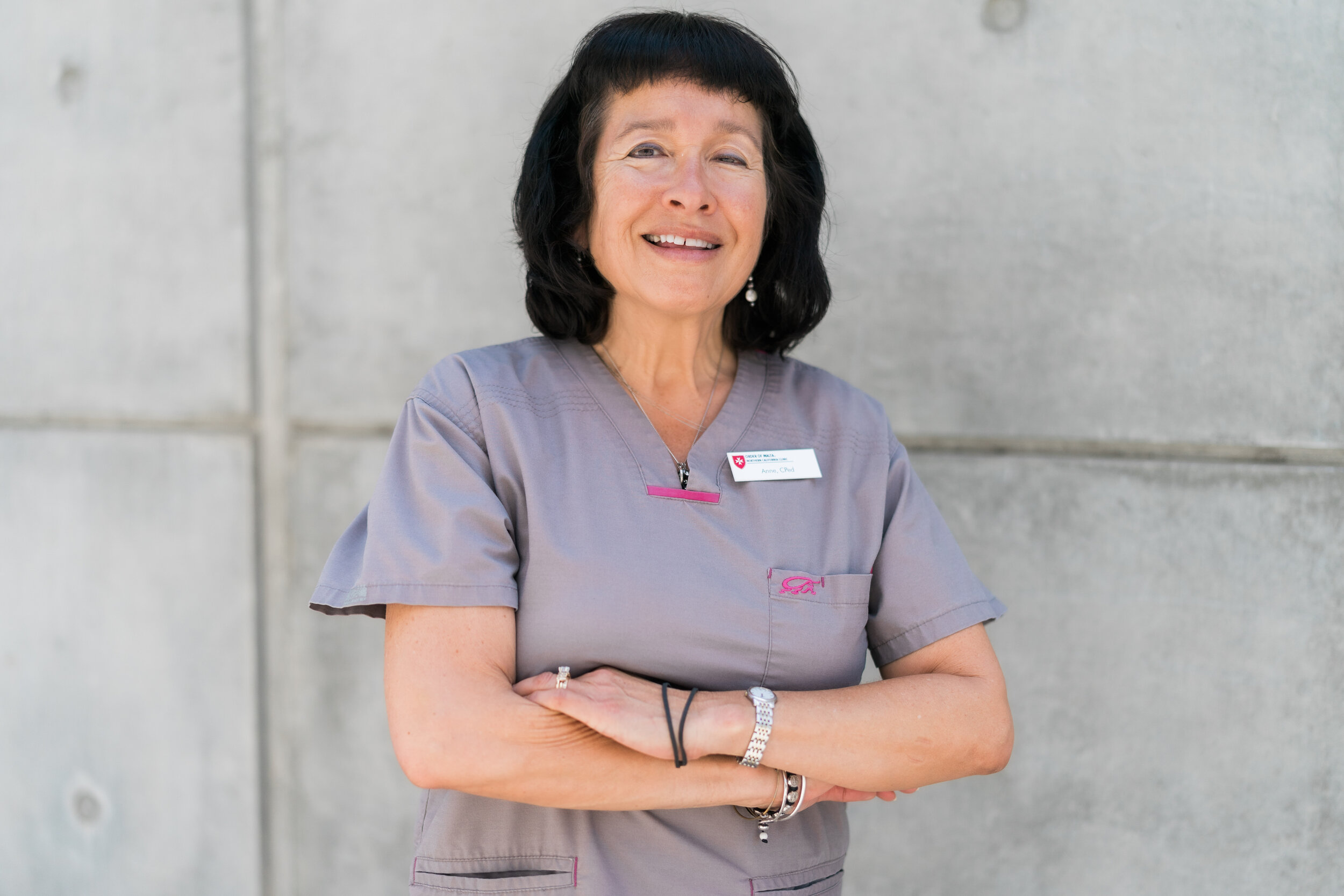Who Cares for the Caregiver? - A Patient’s Story
Walking around outside to the front of the Clinic, I went to greet Mrs. Jacinto who came for her free screening mammogram onboard the new Sutter Health mobile mammography clinic. When we had talked the day before in preparation of this appointment, I asked Mrs. Jacinto if she might be going to the 12:10 p.m. Mass at the Cathedral, knowing she typically attends mass when she has Clinic appointment. Mrs. Jacinto said yes, of course, and that she was saying the Glorious Mysteries of the Rosary today. I gently and knowingly said, "But today is Thursday, it's the Luminous Mysteries." Maybe a touch of unintentional self-righteousness on my part, I bit my lip wincing inside after the words came out. Mrs. Jacinto quickly replied, "It doesn't matter what day it is, I say the Rosary always and continuously." She softly continued, "You know in September when I had COVID-19, I was so scared. We had to stay in a motel and all I could do was walk around my room. Once a day, they would bring us all our food for the day and a CNA (certified nursing assistant) from the board and care home would check in on us. We couldn’t leave, all I could do was walk around my room saying the Rosary.”
All I could do was listen. Words failed me as I was taken aback trying to picture what it must have been like. Words like quarantine, even imprisoned, evoke strong images and feelings.
Mrs. Jacinto is a caregiver. Along with the other caregivers employed and/or living in a small group of residential board and care homes, who were quarantined when diagnosed or suspected of having COVID-19. They were placed in a motel where they had to stay for 14 days in their rooms, receive all their meals once a day, and the only in-person contact was when a CNA checked in on them. These actions were necessary to protect the frail, elderly and disabled living in a board and care home and prevent the spread of coronavirus.
By definition, a caregiver is a family member or paid helper who regularly looks after a child or a sick, elderly, or disabled person. But who cares for the caregiver?
Mrs. Jacinto is Filipino. As are many health professionals, especially nurses and caregivers. Filipinos may be roughly 4% of the population, but represent nearly 20% of the nurses, RN’s, LVN’s and CNA’s. Mrs. Jacinto, like many of our Clinic patients who work as caregivers, will always affectionately refer to those they are take care of as “my patient” or “my patients.” Part of being Filipino is to treat patients like their own family. I know this from having many Filipino friends over the years, growing up Eurasian in San Francisco. I also know this from personal experience, as a wonderful Filipino caregiver helped me with my Mother during the last days of her life. These caregivers often live for extended periods of time with those they care for, many earning only minimum wage, if that. This is why so many cannot afford health care and why the Clinic is their vital link for medical care and services.
There is a word in Tagalog, pakikisama, hard to translate into a one word English equivalent. It means to get along, for the good of others, community. One doesn’t complain. Mrs. Jacinto puts her trust in Mary and Jesus by faithfully saying the Rosary over and over. An example for all of us. After listening to Mrs. Jacinto’s story, I learned that the motel where she was placed at in isolation after contracting COVID-19 was on the outskirts of my neighborhood, a 15 minute walk away. I wish I could have provided her with some comfort – dropped off some food, books, something, had I known.
Mrs. Jacinto doesn’t complain. Neither does Mrs. Concepcion, also our Clinic patient, and by profession a live-in caregiver who spends her day off with her patient’s family. Note “day” off, not days off. Since the pandemic, the family doesn’t want Mrs. Concepcion to leave the house and possibly contract coronavirus. So a member of the family drives Mrs. Concepcion to the Clinic when she needs to pick-up her insulin. But not this time, as Mrs. Concepcion recently lost her job. Yesterday, a family member drove Mrs. Concepcion to the Clinic to get several insulin injectable pen samples worth more than $750.00. We provide this much needed free insulin while working with patients to get them on various patient assistance programs for life saving and often expensive medication. Who cares for the caregiver? We do, the Clinic does.
“I was in prison and you came to visit me.” – Matthew 25:36
By Anne Brussok, DM


